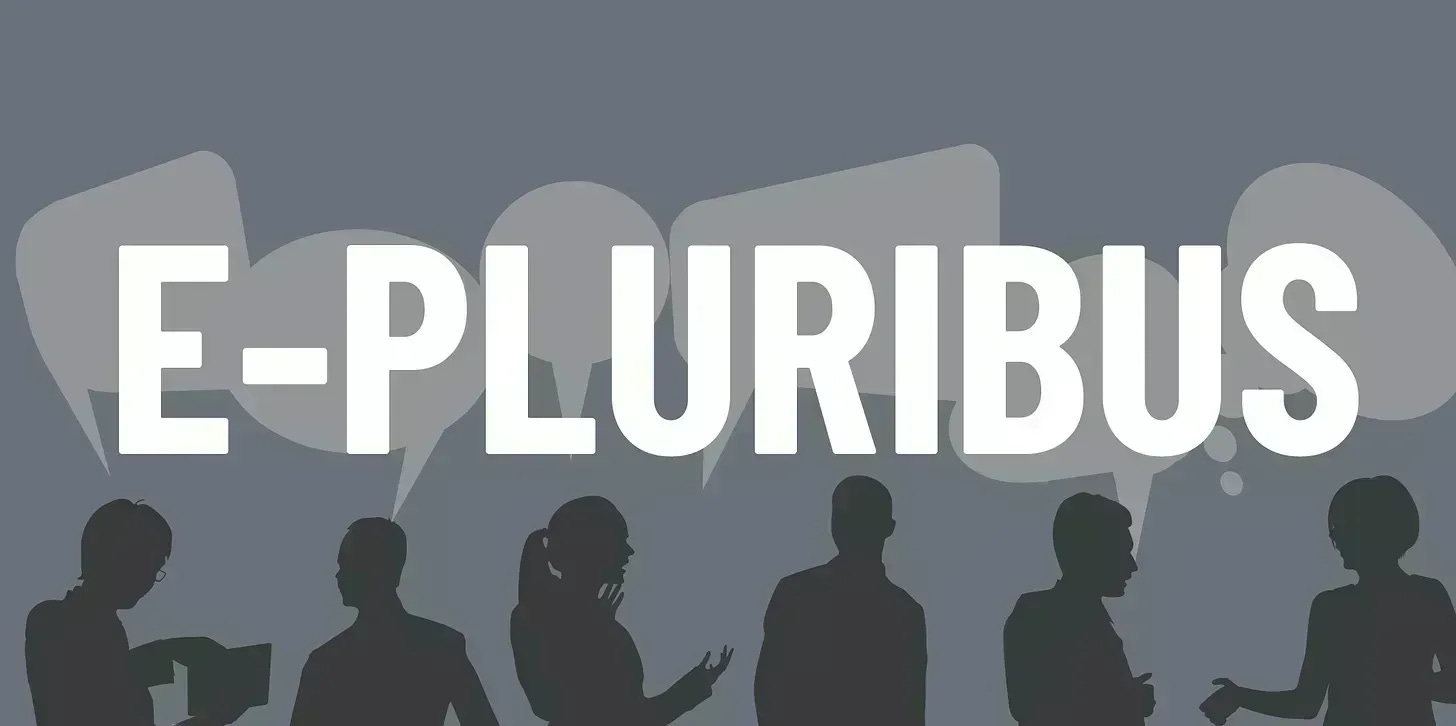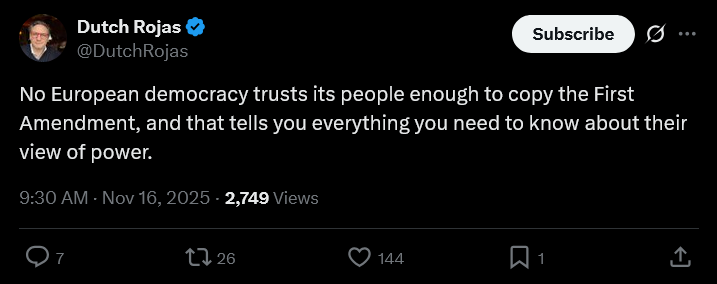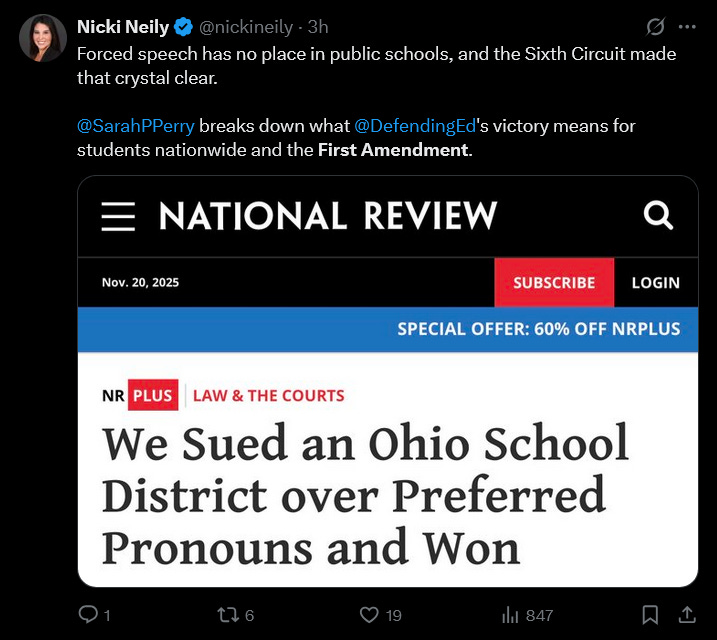E-Pluribus | November 21, 2025
'Information abundance' is good. Texas A&M suppresses conservative students. Thirty-seven days in jail for a Facebook post.
A round-up of the latest and best insight on the rise of illiberalism in the public discourse:
Elizabeth Nolan Brown: People Like Having Too Much Content, Says Swiss Study on Information Abundance
Calls for tighter internet regulation are often motivated by the same rhetorical question: “what about the children?” Kids have access to too much information, the argument goes, which is overloading their brains and fueling mental health crises. But at Reason, Elizabeth Nolan Brown highlights a new study that complicates this pro-censorship narrative:Texas A&M’s student newspaper is actively suppressing conservative student voices on campus, according to one young man who surveyed the paper’s opinion section after his op-ed was rejected. The College Fix reports, and publishes the student’s essay:
Information abundance “is characterized by a vast, readily accessible supply of information available through various sources (e.g., apps, channels) and devices (e.g., smartphones, radios),” per the paper. Sometimes people do not perceive an abundance of information. When they do, it may spur feelings of overload—”a state in which the amount of available information exceeds human information processing capacities”—but also of appreciation, “where an individual values the availability of abundant information” and perceives it “as helpful, stimulating, or exciting.”
Schulz’s team developed something called the Information Overload and Information Appreciation Scale and used it to assess people’s responses to information abundance across digital news, entertainment, and personal communication options.
Interestingly, some people—especially younger people—reported high levels of both overload and appreciation, highlighting how these aren’t mutually exclusive responses.
Both responses remind me a bit of a book I read earlier this year, Ysabel Gerrard’s The Kids Are Online: Confronting the Myths and Realities of Young Digital Life, in which Gerrard talked to a lot of young people about their digital experiences and found our common narrative about them all being distressed and negatively affected by social media was too simplistic. They were distressed by social media, at times, but they also perceived a lot of benefits from it.
The College Fix: Read the conservative op-ed the Texas A&M student paper refused to publish
Texas A&M’s student newspaper is actively suppressing conservative student voices on campus, according to one young man who surveyed the paper’s opinion section after his op-ed was rejected. The College Fix reports, and publishes the student’s essay:
The Battalion student newspaper at Texas A&M university does not seem to be a fan of conservative student thought. An analysis of the 60 opinion pieces focused on politics published since November 2024 found that nearly all of them — 50 — leaned liberal (35), left-leaning (5), far-left (5), and liberal satire (5).
Only 7 of the opinion political pieces were moderate or neutral, and a total of three were conservative, or a ratio of almost 17 to 1 liberal to conservative.
The research was conducted by student Justino Russell, who was inspired to dig into the analysis after the student newspaper refused to run his op-ed submission. Russell sought to respond to a Sept. 23 op-ed authored by an anonymous tenured Texas A&M professor addressed as “a letter to the Students.”
The professor’s 1,000-plus word op-ed defends woke faculty and DEI-related issues, and urges students to organize against conservative political interference allegedly undermining academic freedom.
Russell penned a rebuttal, but it was rejected, because the staff does “not believe the point-by-point polemical style of this piece aligns with the opinion desk’s current editorial priorities. For this reason, we must unfortunately reject your submission.”
Daniel Burnett: He spent 37 days in jail for a Facebook post — now FIRE has his back
Post a meme, go to jail—for more than a month. That’s Larry Bushart’s story in one horrifying sentence. The Tennessee man was finally freed last month, but now he’s backed by the Foundation for Individual Rights and Expression (FIRE), who’s preparing to sue the county who unjustly incarcerated Mr. Bushart:
A 61-year-old Tennessee man is finally free after spending a shocking 37 days in jail — all for posting a meme.
Retired police officer Larry Bushart told a local radio station he’s “very happy to be going home” after his nightmarish ordeal.
But for Larry and FIRE, the fight isn’t over.
In September, after Charlie Kirk’s assassination, Larry shared a meme on a Facebook thread about a vigil in Perry County, Tennessee. The meme quoted President Donald Trump saying, “We have to get over it” following a January 2024 school shooting at Perry High School in Iowa. The meme included the commentary, “This seems relevant today …”
Just after 11 p.m. on Sept. 21, four officers came to Larry’s home, handcuffed him, and took him to jail. He was locked up for “threatening mass violence at a school.” His bond — an astronomical $2 million!
Around X
A good question for European politicians. Why haven’t you instituted something like America’s First Amendment?
Friendly reminder: government institutions can’t silence speech, but they can’t compel it either. It’s a protection enshrined in the Constitution, and the courts agree.
If it needs to be said, FIRE is happy to say it. The president shouldn’t be telling a news network to fire one of its anchors—no matter what he says on the air.









